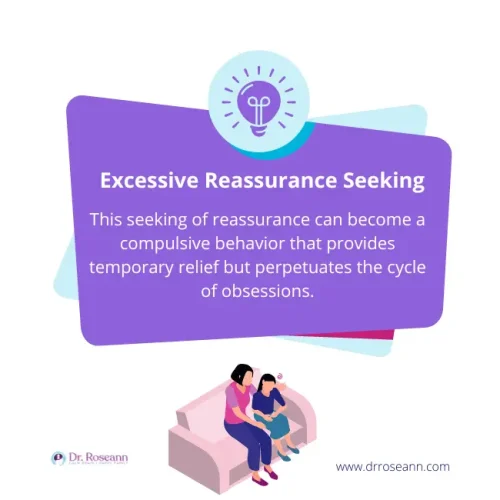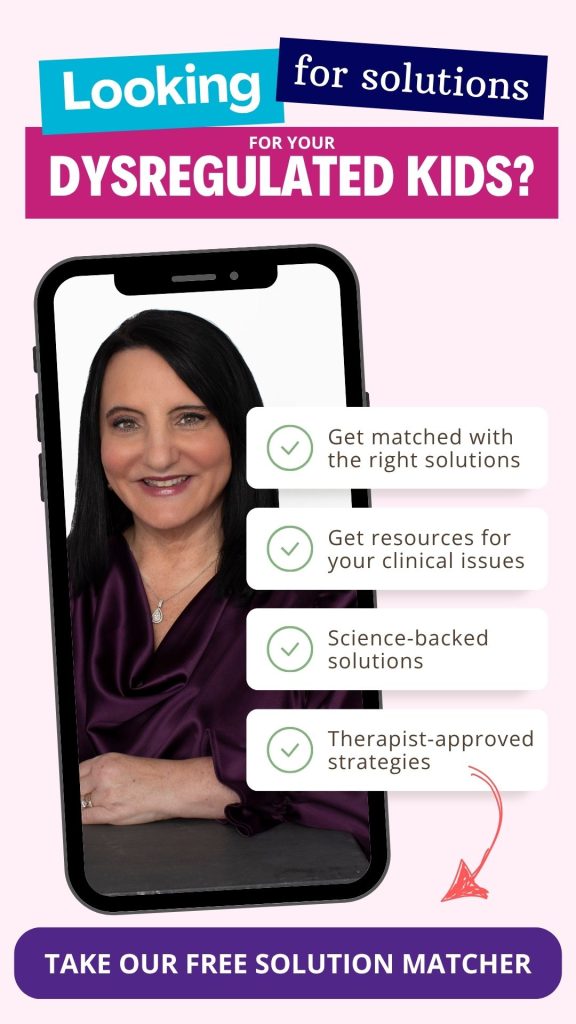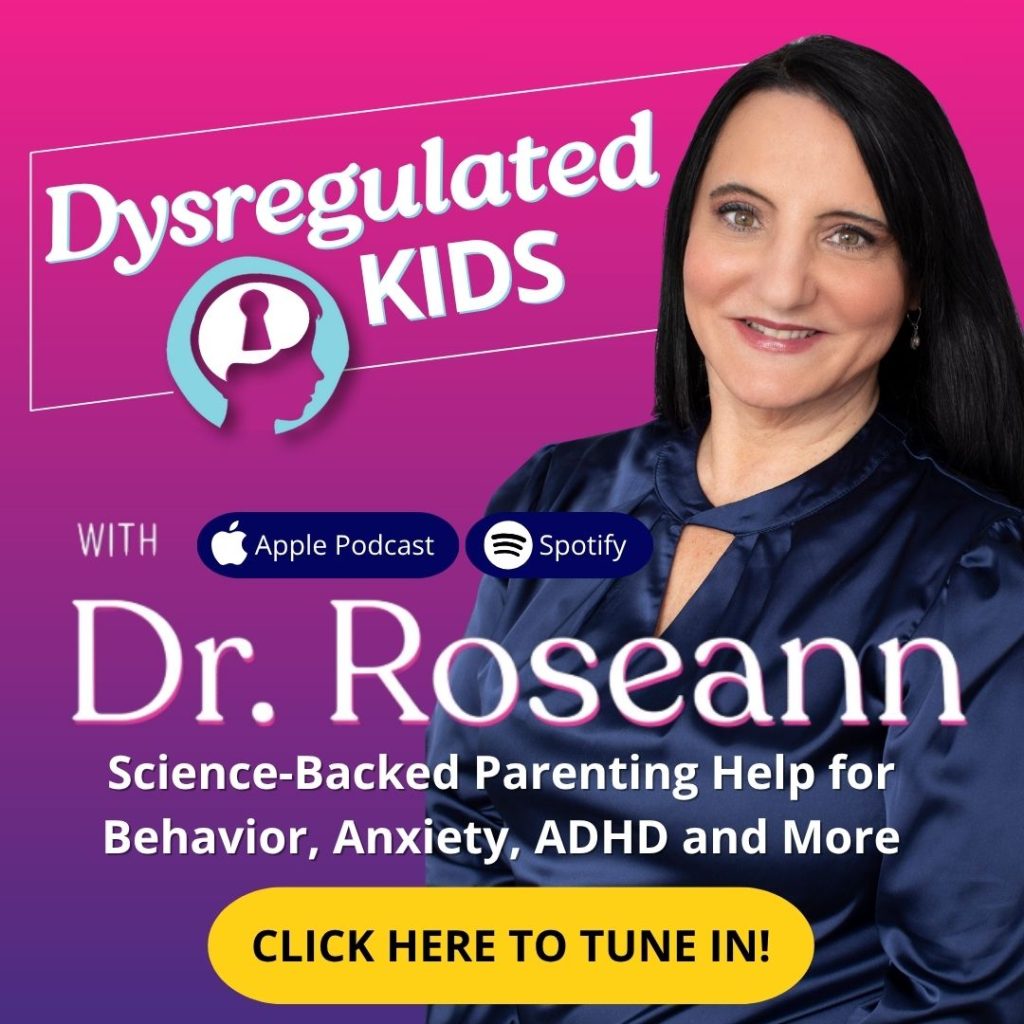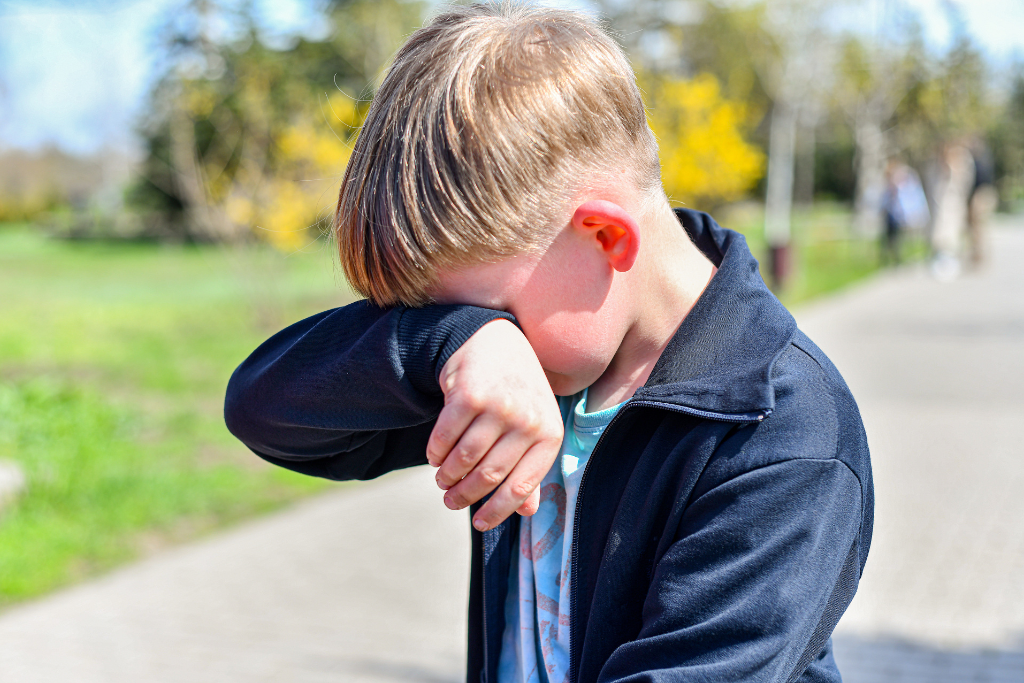
Estimated reading time: 12 minutesWhen your child has OCD, it can feel like you’re doing everything and still falling short.But here’s the thing: your child is overwhelmed too, trying to make sense of thoughts and feelings that don’t make sense to them either.The guilt you feel is something so many parents carry but healing starts when you pause, take a deep breath, and begin to see the world the way your child experiences it.
What is Obsessive Compulsive Disorder (OCD)?
OCD isn’t just stubborn habits or bad behavior. It’s a brain and nervous system out of sync, causing intrusive thoughts that spark anxiety and push kids into repetitive rituals just to catch a breath of relief.
1. Frequent Occurrence of Intrusive and Unwanted Thoughts
Intrusive thoughts, a hallmark of OCD, are unwanted, distressing images, ideas, or impulses that disrupt a person’s mind.These thoughts often:
- Conflict with personal values
- Focus on themes such as contamination, harm, or taboo actions
- Strike unpredictably, causing intense anxiety
While kids usually know these thoughts don’t make sense, they:
- Struggle to ease the resulting distress
- Experience persistent cognitive distress
- Face interference with daily functioning
2. Kids Fixate on Negative Thoughts
Mental Rumination is characterized by:
- Persistent and repetitive focus on negative or distressing thoughts without resolution.
- Obsessive replaying of events, worries, or problems in the mind.
- Unproductive thinking, unlike problem-solving which actively seeks solutions.
- Association with mental health conditions like OCD, depression, and anxiety (Wahl et al., 2021).
- Difficulty breaking the cycle of overthinking, leading to emotional exhaustion.
- Feelings of being trapped in one’s own mind due to continuous looping thoughts.
- Impaired decision-making and disrupted daily functioning.
- Maintenance of negative emotional states such as heightened stress and anxiety.
This kind of stuck thinking drains their energy and blurs clear decision-making, making their minds feel like a tangled mess.
3. Kids Often Develop Intense Self-Esteem Issues
Self-esteem often takes a hit when doubt becomes a constant companion. In mental illness, doubt often appears as:
- Persistent questioning
- Hesitation
- Heightened fear of making a wrong decision or facing undesirable consequences
Uncertainty involves:
- Lack of confidence or assurance about outcomes
- Doubt about the accuracy of one’s perceptions
In OCD, symptoms include:
- High levels of doubt about thoughts, beliefs, or actions
- A cycle of obsessive thinking
- Compulsive rituals aimed at resolving these doubts
4. Fear of Making Mistakes
Fear of making mistakes is common and can impact many areas of a child’s or teen’s life, including relationships and school.This fear is rooted in a deep concern about the potential consequences of errors, often leading to:
- Heightened anxiety
- Self-doubt
- Perfectionistic tendencies
Sources of this fear may include:
- Societal expectations
- Personal standards
- Past experiences of criticism or judgment
People who fear making mistakes may:
- Avoid situations where errors are possible
- Invest excessive time and energy into double-checking
- Seek reassurance to prevent perceived missteps
5. Things Have to Be “Perfect”

OCD is often linked to perfectionism, where individuals strive for unattainable standards, and any deviation causes distress. Perfectionism may involve:
- Meticulous planning
- Over-preparing
- Constant self-monitoring
While aiming high can be a good thing, when perfection becomes the only option it leads to:
- stress
- procrastination
- diminished sense of accomplishment
6. Kids Practice Obsessive Mental Checking
Mental checking is a cognitive process involving:
- Repetitive, intrusive review of thoughts, memories, or information.
- An attempt to alleviate anxiety or uncertainty.
It is commonly linked to OCD and is present in other anxiety-related conditions. And unlike physical compulsions, it involves internal processes that are invisible to others.Individuals engaging in mental checking may repeatedly review:
- Past events
- Conversations
- Decisions
This behavior arises from:
- An intense need for certainty
- Fear of making mistakes or overlooking important details.
Those with obsessive-compulsive checking tendencies often exhibit low confidence in their memory recall especially about situations where they bear responsibility (Cougle et al., 2007).

7. OCD Children Avoid Triggers
Avoidance sneaks in as a quick fix to dodge triggers that stir obsessive thoughts to reduce immediate discomfort linked to feared stimuli.While avoidance may provide short-term relief, it can:
- Significantly impact daily functioning and quality of life.
- Prevent children from learning to tolerate and cope with anxiety-provoking situations, leading to long-term challenges.
8. Kids Don’t Sleep Well, Eat Well, and Perform Well
The obsessive thoughts and compulsive mental rituals associated with OCD can lead to significant emotional distress, which may include:
- Anxiety
- Guilt and shame
- Frustration or irritability
This distress often goes beyond normal mood changes and can:
- Disrupt daily functioning
- Impair concentration and decision-making
- Interfere with sleep and appetite
- Reduce overall emotional well-being
Over time, prolonged emotional distress can significantly affect a child's or teen's mental, emotional, and physical health.
9. Known to Be the “Asocial” in the Group
Kids with OCD might get labeled as “asocial” but often it’s just the fear locking them down tighter. Avoidance and isolation can:
- Reinforce perceived danger, making triggers feel even more threatening
- Block emotional processing and healthy coping
- Maintain or worsen anxiety, keeping individuals stuck in the OCD cycle
Overcoming avoidance is key to building tolerance for discomfort and supporting long-term psychological resilience.
10. Excessively Seeks Reassurance
Reassurance-seeking becomes a go-to survival move, asking the same questions over and over like a record stuck on repeat.It soothes briefly but then fuels the fire of doubt and anxiety once more and reinforces the OCD cycle.

Key characteristics include:
- Persistent self-doubt and fear of negative outcomes
- Temporary relief followed by recurring anxiety
- Difficulty tolerating uncertainty, leading to repeated questioning
- Blurred perception of reassurance effectiveness as obsessions intensify (Champion & Grisham, 2021)
Like double-checking, reassurance-seeking serves as a compulsive coping mechanism—one that ultimately sustains rather than soothes the anxiety.
11. Compulsive Information-Seekers
Information-seeking spirals out of control when kids hunt for answers everywhere—online, in conversations, anywhere they hope to find certainty.This cycle offers little comfort and can actually chip away at their trust in themselves.This behavior often includes:
- Excessive online research or consulting multiple sources
- Repetitive questioning of others for facts or clarification
- Time-consuming efforts to feel a sense of control or certainty
- Temporary relief followed by recurring doubt and further searching
While intended to reduce anxiety, this cycle typically reinforces obsessive fears and undermines trust in one’s own judgment.
12. Relentlessly Asks Questions Over and Over
Individuals with OCD may engage in repeated reassurance-seeking, asking others to confirm or validate their thoughts, decisions, or perceptions.This behavior is often driven by:
- A need to reduce distress caused by uncertainty or obsessive thoughts
- Fear of making mistakes or facing negative consequences
- Desire for external validation to feel secure or "correct"
- Chronic anxiety that undermines confidence in one’s own judgment
While momentarily comforting, this cycle reinforces anxiety and obsessive thinking over time.
13. Overanalyzes Past Events
People with OCD may engage in excessive overanalysis of past events in an effort to manage obsessive thoughts and avoid perceived mistakes. This behavior often includes:
- Mentally replaying conversations to check for possible missteps
- Second-guessing decisions long after they’re made
- Dwelling on perceived errors or imperfections
- Seeking resolution for lingering doubts to feel more in control
Although intended to reduce uncertainty, overanalyzing often intensifies anxiety and reinforces the obsessive-compulsive cycle.
14. Everything Has to Be in Order
While mental checking is a hallmark symptom of OCD, many individuals also engage in physical self-checking behaviors to relieve anxiety and gain a sense of certainty.These behaviors may include:
- Repeatedly checking one’s body for signs of illness or injury
- Constantly inspecting personal belongings to ensure nothing is missing or out of place
- Rechecking the environment (e.g., locks, appliances, doors) for safety or order
- Verifying details multiple times to reduce uncertainty and fear of mistakes
These compulsions are driven by the need to feel in control and reduce obsessive distress.

15. Notorious Procrastinators
Due to a fear of making mistakes, individuals with OCD often procrastinate on decisions or tasks as a way to avoid potential errors or distressing outcomes.This procrastination is frequently fueled by short-term emotional relief and may include:
- Delaying tasks to avoid the discomfort of uncertainty or perceived imperfection
- Postponing decisions due to fear of making the “wrong” choice
- Avoiding responsibilities that trigger obsessive thoughts or compulsions
- Engaging in distraction to escape negative emotions tied to task performance
While this strategy eases anxiety in the moment, it often leads to increased long-term stress and impaired functioning.
16. Frequently Anxious
Individuals with OCD often experience persistent anxiety, especially in response to obsessive thoughts.This anxiety is driven by fears of making mistakes or facing perceived negative consequences.In more severe cases, it can escalate into panic attacks, with symptoms like rapid heartbeat, chest tightness, and shortness of breath.
17. Mistakes Are “Unacceptable”
Intrusive thoughts often trigger guilt related to perceived wrongdoing or moral failure. Guilt may center around imagined harm or doubts about one’s character.It’s important to distinguish between healthy guilt that promotes growth and excessive guilt that leads to emotional suffering.
18. Often Have Negative Perceptions of Themselves
The shame associated with OCD can significantly impact self-worth.Your child may feel embarrassed or defective because of their obsessive thoughts or compulsive behaviors.Unlike guilt (which is about actions), shame is a deeper belief that there is something fundamentally wrong with the self.Helping our children grow emotionally means modeling both self-compassion and accountability.
19. Overshadowed by Irrational Fears
Fear plays a central role in OCD, often involving:
- Irrational worries about making the wrong decision
- Fears of causing harm to oneself or others
- Anxiety about facing negative consequences
While fear is a natural survival mechanism designed to:
- Alert the body and mind to potential danger
- Prepare an individual to either confront or flee from threats
In OCD, this fear becomes maladaptive by:
- Triggering chronic anxiety
- Reinforcing obsessive-compulsive cycles
- Contributing to overall distress and dysfunction
20. Prone to Depression
The lifetime prevalence of OCD, combined with the emotional burden of constant intrusive thoughts, can lead to feelings of sadness and depression.Persistent doubts and uncertainties often foster a sense of hopelessness.Depression is a complex mental health disorder characterized by:
- Enduring sadness
- Hopelessness
- Loss of interest or pleasure in activities
Depression significantly impacts various aspects of daily life, including:
- Work
- Relationships
- Overall well-being
21. Frequently Feels Overwhelmed
Feeling overwhelmed is an intense experience of struggling to cope with life’s demands. For those with OCD, constant obsessive thoughts and mental reviewing can be mentally exhausting and emotionally draining.
22. Easily Frustrated
Frustration is an emotional response to obstacles or unmet needs that block goals, often causing anger, disappointment, and stress when reality falls short of expectations.For individuals with OCD, frustration can stem from the inability to escape obsessive thoughts and the fleeting relief compulsive behaviors provide. They may feel frustrated with themselves for struggling to control or stop these persistent thought patterns.
23. Constantly Uneasy
Uncertainty is a fundamental part of the human experience, characterized by a lack of predictability or assurance about future events, outcomes, or conditions. It is an unavoidable aspect of life that affects personal relationships, work, health, and decision-making.Doubt and uncertainty are central to OCD, causing ongoing emotional distress. To ease this, individuals often engage in compulsive behaviors seeking certainty or to avoid feared outcomes.
24. Kids Feel Helpless and Hopeless
Anguish is an intense emotional state marked by:
- Deep suffering
- Torment
- Acute mental pain
It often arises from factors such as:
- Overwhelming grief
- Despair
- A sense of helplessness
- Significant life events
- Loss
- Childhood trauma
- Anticipation of impending adversity
The impact of anguish includes:
- Difficulty enjoying daily activities
- Challenges in maintaining a positive outlook
- Emotional distress caused by obsessive thoughts
- Distress from compulsive mental rituals
25. They Are Emotionally Exhausted Everyday
Emotional exhaustion is a profound state of fatigue and depletion of emotional resources, often caused by:
- Prolonged periods of stress
- Intense emotional demands
- Ongoing challenges that strain an individual’s mental and emotional resilience
Why the Right OCD Treatment Can Change Everything for Your Child
OCD isn’t about being neat or quirky; it’s a serious brain-based condition that won’t simply go away with time. Unlike other mental health issues, OCD has unique patterns that require specialized treatment. Medications like SSRIs can affect a child’s developing brain, and they don’t always work.That’s why our BrainBehaviorReset™ Program offers a natural, science-backed solution—without side effects. It helps kids regain control and calm the nervous system, safely and effectively.Your child deserves lasting relief and the right treatment can make all the difference.
Parent Action Steps
Learn more about OCD by listening to my It’s Gonna Be OK! Podcast and the OCD Series Build a predictable daily routine to reduce stress and triggers.Work with trained mental health professionals and explore options like Cognitive Behavioral Therapy and Exposure Response Prevention Therapy Take the OCD Quiz to learn how to manage the symptoms of OCD.Use the Solutions Matcher to get appropriate treatment options for your child.
FAQs
What exactly causes OCD in children?
OCD arises from a mix of genetic, neurological, and environmental factors that affect brain circuits involved in anxiety and behavior regulation. It’s not caused by bad parenting or willpower but by brain-based differences that require understanding and treatment.
What are typical signs of OCD I should watch for?
Look for repetitive behaviors like excessive checking, counting, or cleaning, along with intrusive, unwanted thoughts that cause distress. These symptoms interfere with daily life and don’t go away with simple reassurance.
Is OCD just a phase my child will outgrow?
OCD is not simply a passing phase or something children grow out of. It’s a brain-based condition that often requires targeted treatment to manage effectively and prevent worsening symptoms over time.
Can medication alone fix OCD symptoms in kids?
Medications like SSRIs can help reduce OCD symptoms for some children, but they aren’t always effective and may come with side effects that affect brain development. Combining medication with therapy usually offers the best chance for lasting improvement.
Should I stop helping with my child’s rituals?
While it’s natural to want to ease your child’s distress, accommodating OCD rituals often reinforces the behavior. Slowly reducing these accommodations with professional guidance helps your child build resilience and regain control.
Citations
Champion, S. M., & Grisham, J. R. (2021). Excessive reassurance seeking versus compulsive checking in OCD: Comparing implicit motivators and mechanisms. Journal of Behavior Therapy and Experimental Psychiatry, 75, 101720. https://doi.org/10.1016/j.jbtep.2021.101720Cougle, J. R., Salkovskis, P. M., & Wahl, K. (2007). Perception of memory ability and confidence in recollections in obsessive-compulsive checking. Journal of Anxiety Disorders, 21(1), 118–130. https://doi.org/10.1016/j.janxdis.2006.03.015Wahl, K., van den Hout, M., Heinzel, C. V., Kollárik, M., Meyer, A., Benoy, C., Berberich, G., Domschke, K., Gloster, A., Gradwohl, G., Hofecker, M., Jähne, A., Koch, S., Külz, A. K., Moggi, F., Poppe, C., Riedel, A., Rufer, M., Stierle, C., & Voderholzer, U. (2021). Rumination about obsessive symptoms and mood maintains obsessive-compulsive symptoms and depressed mood: An experimental study. Journal of Abnormal Psychology, 130(5), 435–442. https://doi.org/10.1037/abn0000677Dr. Roseann Capanna-Hodge is a mental health expert who is frequently called up to give her expert opinion in the media:
- Insider – What is OCD?
- Single Care Controlling the uncontrollable: Living with OCD during a pandemic
- Holistic Counseling Podcast: Effective Treatments for OCD
- Epidemic Answers: Neurofeedback for ADHD, anxiety, OCD and mood
- BCIA: Calming the OCD Brain with Neurofeedback and ERP Therapy
- Integrative Practitioner: Integrative Approaches to Treating OCD
- HappiHuman: Is it an Eating Disorder or OCD
Always remember... “Calm Brain, Happy Family™”
Disclaimer: This article is not intended to give health advice and it is recommended to consult with a physician before beginning any new wellness regime. *The effectiveness of diagnosis and treatment vary by patient and condition. Dr. Roseann Capanna-Hodge, LLC does not guarantee certain results.
Are you looking for SOLUTIONS for your struggling child or teen?
Dr. Roseann and her team are all about science-backed solutions, so you are in the right place!
Looking for the right solutions for your OCD kid? Take our free OCD quiz


%20.png)
















